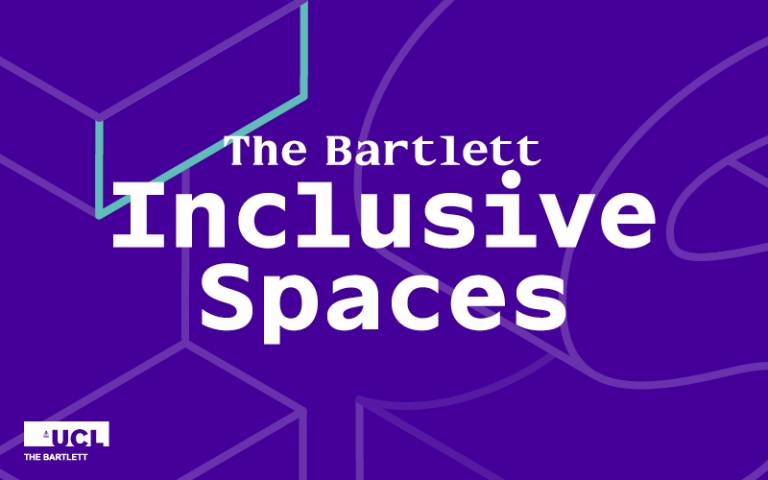Inclusive Spaces: Trans Visibility and the City
23 March 2023, 1:00 pm–2:00 pm

This online Inclusive Spaces event will explore trans people’s experiences of in/visibility in urban spaces and city life, and the contradictions that can make them simultaneously hyper-visible and hyper-vulnerable.
This event is free.
Event Information
Open to
- All
Availability
- Yes
Cost
- Free
Organiser
-
The Bartlett Faculty of the Built Environment
Trans ‘visibility’ can be complex in the way it shapes trans people’s lives and influences their capacity to safely and fully participate in public and private spaces.
In this event we will explore migration, precarity, safety and belonging, focusing on trans people’s experience of navigating community spaces and institutionalised systems in London. We’ll discuss how trans people are negotiating social and political conditions characterised by intense contradiction, and this can make them simultaneously hyper-visible and hyper-vulnerable.
Raising the visibility of trans people’s lives, and the barriers to safe and comfortable participation in public life spaces, is essential for gender equality and trans liberation. Platforming trans peoples’ voices and experiences in the media, arts, literature, politics and academia is a crucial way of countering the dehumanisation and stigmatisation that underpin transphobic oppression and discrimination.
Visibility imposed through derogatory and unevidenced transphobic claims made in media coverage and social media discourses, places trans people in vulnerable positions. The 56% increase in transphobic hate crime between March 2021 and 2022 has been connected by the UK Home Office to the heightened discussion of trans issues on social media. The politics of visibility in the media profoundly shapes the public and private lives of trans people, with diverse impacts and implications according to personal circumstances, as well as social and spatial context.
Against this backdrop, we will explore important but frequently overlooked historical and contemporary lives and contexts, in which in/visibility, trans people, urban spaces and city life come together.
Led by The Bartlett Equality, Diversity and Inclusion (EDI) group, the Inclusive Spaces monthly series presents the latest ideas and research from The Bartlett’s leading thinkers in the built environment field. We explore disability, race, gender, LGBTQ+ and many other dimensions of diversity and discover how they intersect with built environments around the world.
Recording and accessibility
The session will be recorded, and the recording and written transcript will be shared with attendees after the event.
We want to make our events accessible for everyone, and we encourage you to let us know if you have any accessibility requirements including:
- Presentation slides in advance for screen readers
- Live closed captions during the event
- Live British Sign Language interpretation during the event
- Any other requirements
Please contact Alma Daskalaki, Bartlett Faculty Events Officer at a.daskalaki@ucl.ac.uk with accessibility requirements. Please note we require two working days' notice for requests.
About the Speakers
Lo Marshall
Lo Marshall (they/them) is a Senior Research Fellow and Tutor at the Bartlett Faculty of the Built Environment, UCL, where their research and teaching focuses upon LGBTQI+ people, communities, and spaces.
Beyond academia, Lo was named an ‘emerging voice in architecture’ as part the London Festival of Architecture in 2020 and has contributed to exhibitions and events at The Tate Modern (2017), Museum of London (2018), Whitechapel Gallery (2019), London Science Museum (2022), and The Design Museum (2020-21).
More about Lo MarshallCarmen Abouamra
Carmen Abouamra is a PhD candidate, and a graduate teaching assistant at the Development Planning Unit, institute for Global Prosperity, and department of Arts and Sciences. She has a background in architecture, urban design, and development.
Carmen holds a master’s in building and urban design in development, as well as a bachelor’s in architecture and a postgraduate diploma in urban design. Her PhD research is currently focused on migratory spaces and their intersections with gender and sexuality.
More about Carmen AbouamraCarla Ecola
Founder/Director at The Outside Project
Carla Ecola is a queer homelessness activist, and Founder/Director of The Outside Project, London's LGBTIQ+ Community Centre, Shelter and Domestic Abuse Refuge.
More about Carla Ecola Close
Close

